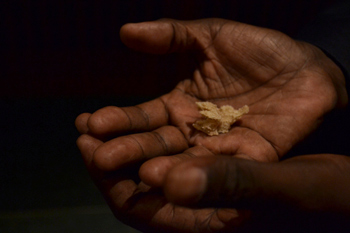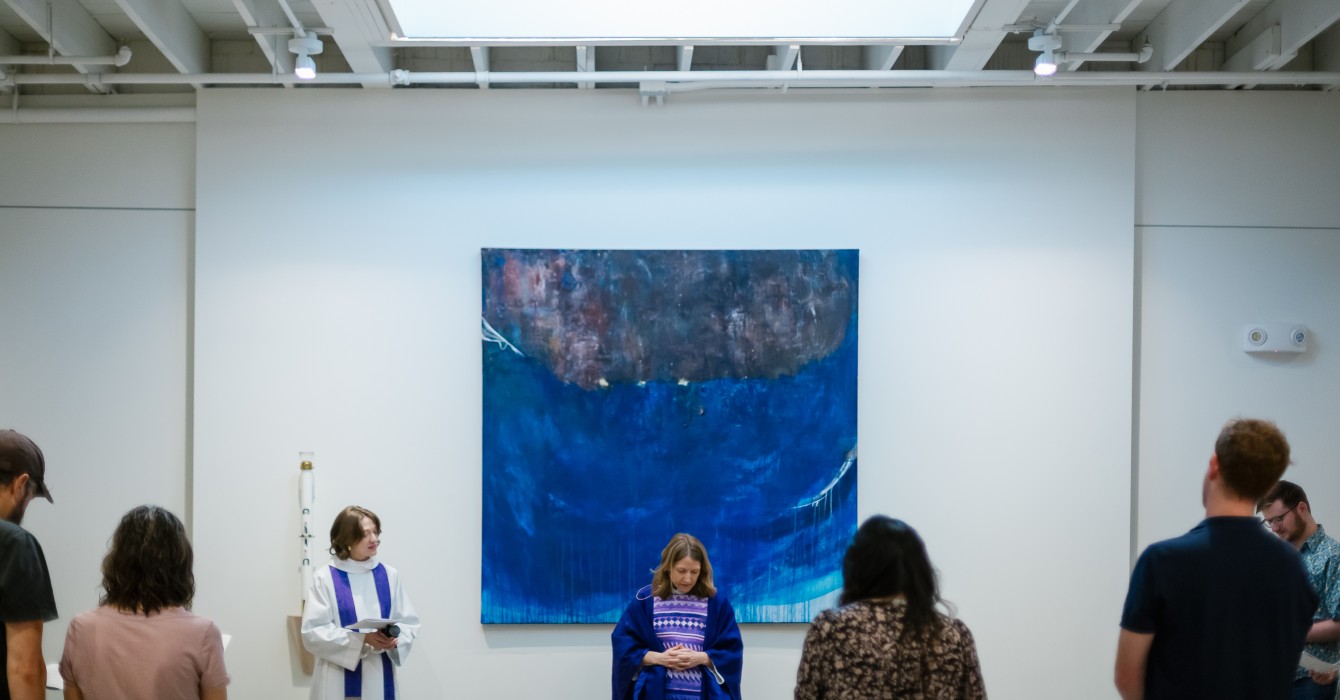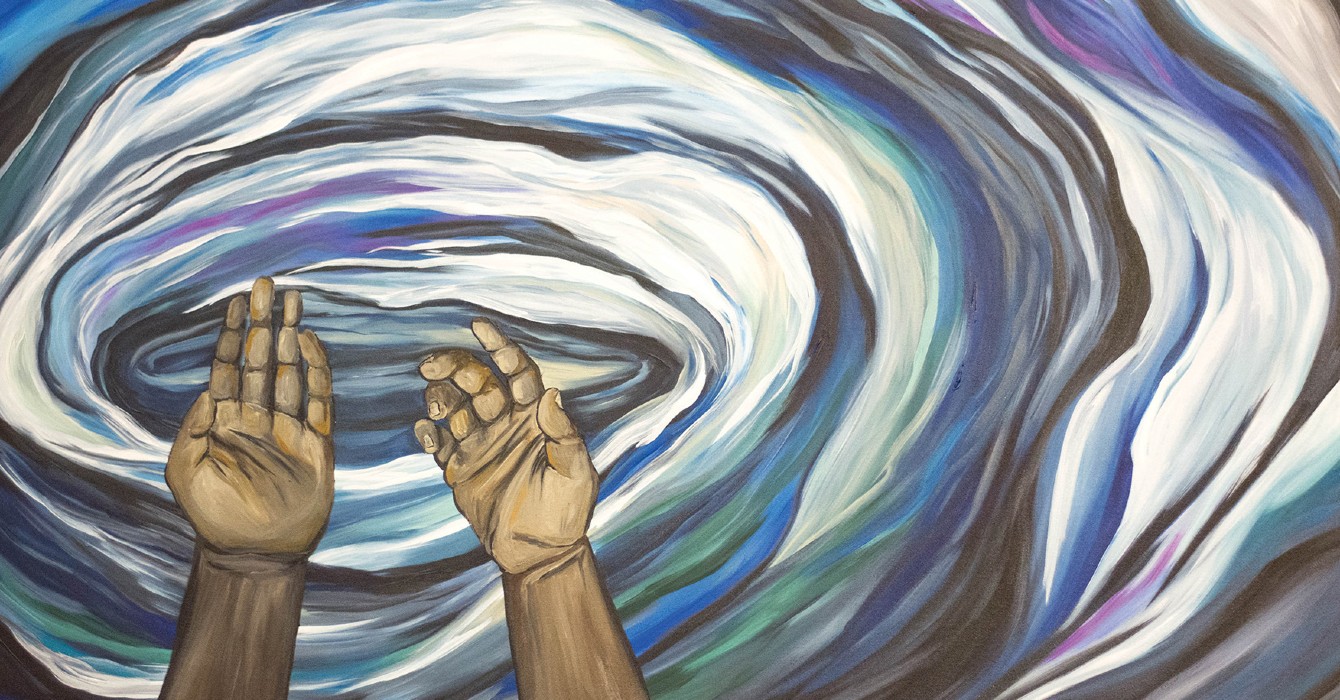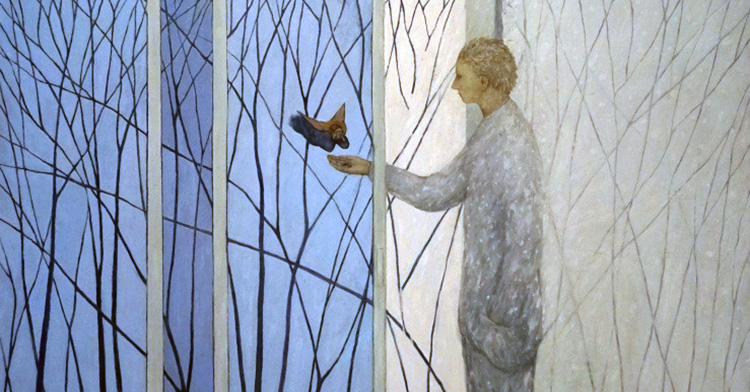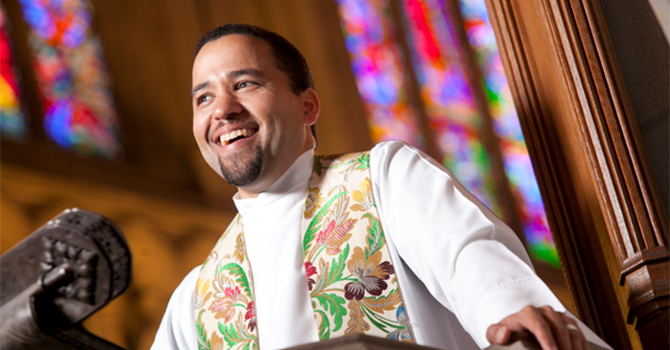Editor’s note: Faith & Leadership offers sermons that shed light on issues of Christian leadership. Noelle York-Simmons preached this sermon on April 1, 2010, at All Saints’ Episcopal Church in Atlanta.
I love my job.
I love my job for many, many reasons. One of the reasons I love my job is that I love to serve communion.
A priest friend of mine says that she feels most at home behind the altar, saying the words of institution, breaking the bread and pronouncing it the body and blood. That part is a remarkable honor, to be sure, an honor I am humbled by, but I really love to serve communion, to pass it out, to commune with you.
One of the most remarkable things about serving communion here, or at any church, really, is the variety of hands that are outstretched before me at any given Eucharist. As I walk slowly down the row, I see all manner of hands attached to people I love, people who challenge me and people I’ve never met.
I see hands scarred and hands smooth, rough from working or inky from writing, sticky kids’ hands covered with marker, older hands gnarled with arthritis. The hands that open in front of me are bejeweled and unadorned, sensible and sensitive.
These hands tell your stories, of the garden you’ve planted and the children you’ve fed. They talk about the sort of work you do and how you use your time. And I know that there are even more stories that your hands are not telling, about tears you have wiped, wounds you have healed, about what you have built and what you have broken down.
And I have the honor of bestowing upon each pair of hands a piece of the broken body of our Messiah, whose hands also healed and held, worried and worked. And in this way, we continue the Christian story.
Think of the hands in the Gospel: there were Mary’s hands -- Mary, who held her baby tightly as they fled into Egypt. There were the hands of the fishermen pulling in their nets and the hands of the woman who bathed Jesus’ feet with her tears. There were the hands that grasped at the fringe of his garment to be freed from a lifetime of physical ailment. There were the hands that betrayed him, Judas’ hands. Pilate’s guilty hands that were washed of responsibility. Hands that waved palms and hands that held whips. Hands that nailed him up and hands that carefully took him down, bathed him and buried him.
As the story passes on to us, these hands become our hands. We receive the body of Christ in upturned hands every time we kneel at the altar. And as we kneel and wait, our hands, so unique and revealing about our lives, are made equal. The hands of strangers and friends are stretched out in like fashion. Everyone gets exactly what she needs: no one has more; no one has less. The body of Christ, the bread of heaven.
The Eucharist was instituted when Jesus passed broken bread into the hands of those who loved him and sat at table with him. “Take, eat. This is my body, given for you.”
Jesus’ hands will be pierced through with nails. His hands will always bear the mark of what was done to them; his hands will tell a story, the story of how his body was broken for us. In addition to the story of Jesus communing with his friends, we will remember the story of brokenness and human error every time we kneel down, too. We will remember that story every time we open our own hands to receive that broken body.
Our hands act out this story every time we celebrate together as our minds and our hearts race to embrace it, to make sense of it, to own it. With our hands and voices, we remember our Christian story, all of it, the proud parts and the difficult ones. We identify with the people who lived it and perhaps see ourselves in them.
But we’re here, now. We’re living in the present and trying to make sense of our own reality, of our own actions, by reading and understanding what went on before us. Like our forebears who sat at supper with Christ, we approach this table a little confused, a little apprehensive, a little guilty, a little haughty, a little entitled, a little self-righteous.
But when we kneel down and turn up our palms, asking for the bread which will feed us, body and soul, for just this moment, for just this now, we are supplicants together, equally implicated, equally beloved. Our hands tell our stories, and our hands, outstretched, show that we are reaching toward belief. Just for a moment.
And when that now ends, our hands go on to other things -- herding children, fiddling with ties, jingling keys. We go back to our pews, back to our thoughts and our lives, and start thinking about what happens next. Because what happens next is our response to what has been given into our hands.
When we take the bread into our hands and then into our bodies, we fill ourselves to go out into the world. We prepare ourselves for the work our hands and hearts have to do as Christians, as God’s beloved. We stand up and look to the future, getting ready for the journey ahead, regardless of whether we know what is to come. The next part of the story is ours.
Christ delivered himself to us, into our hands, and now it is our job to carry him out into the world. We can choose how to do that. We can choose whether to nurture or to nail. We can choose whether to clasp our hands in prayer, to open them in confession, or to make our hands too busy to think about it. When we leave this place and use our hands with our heads and our hearts in response to the story of the Gospel, we bring the reminder of that bread, that broken body, into a world that needs the promise of the resurrection.



